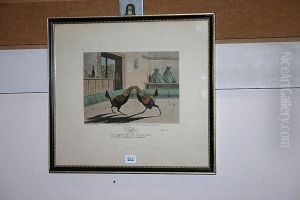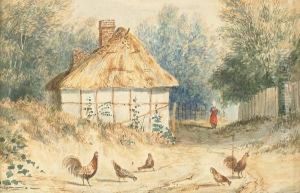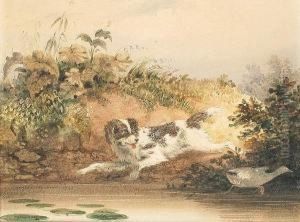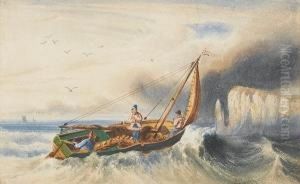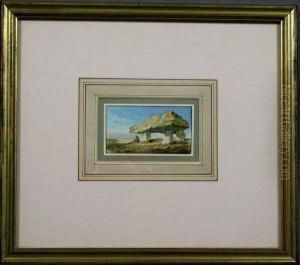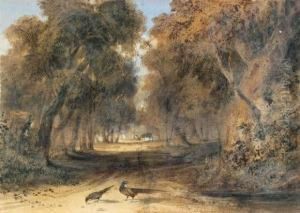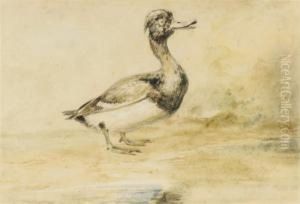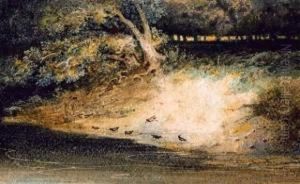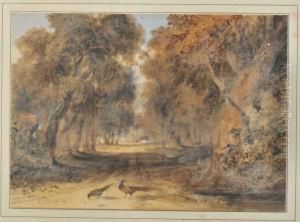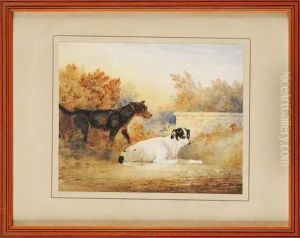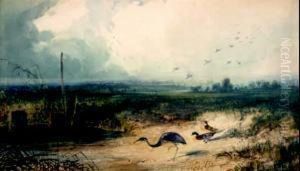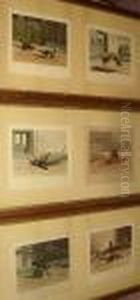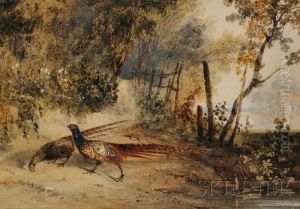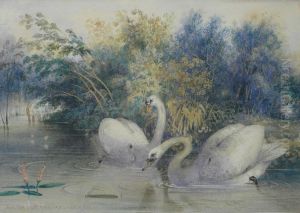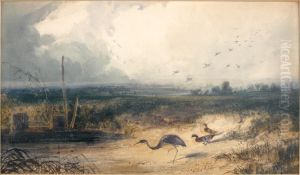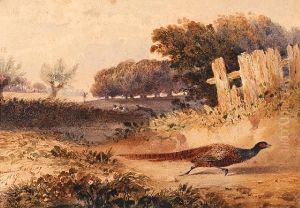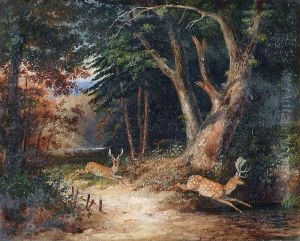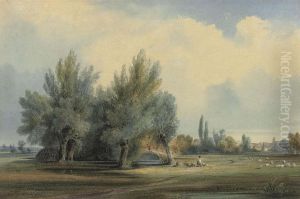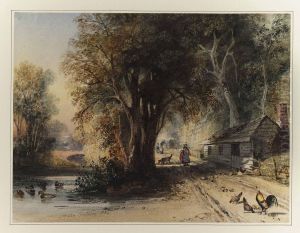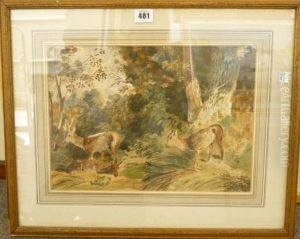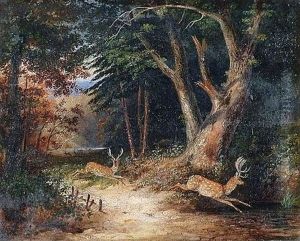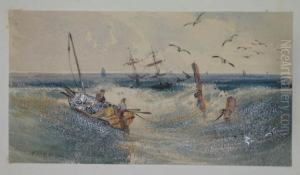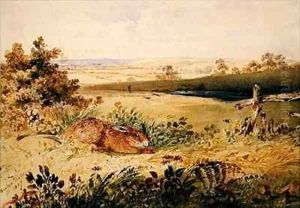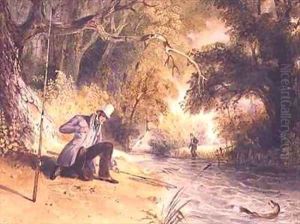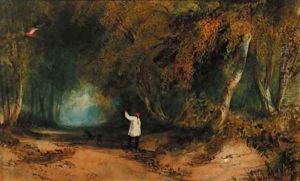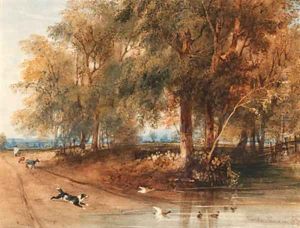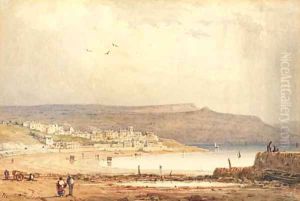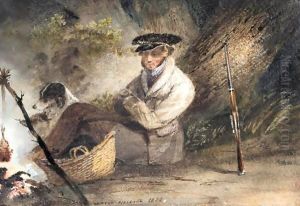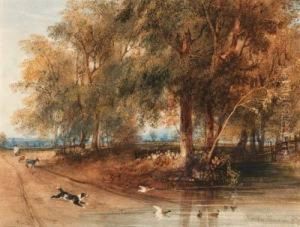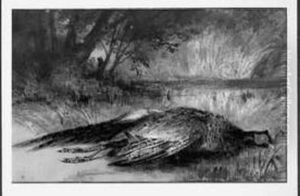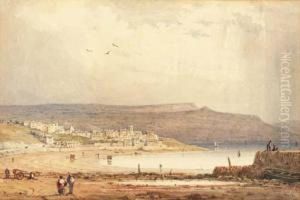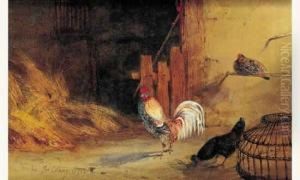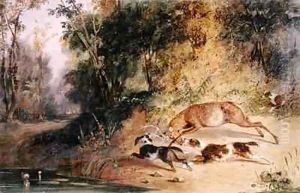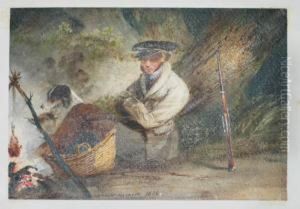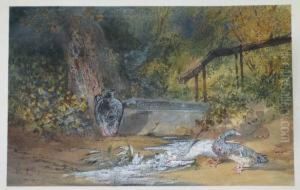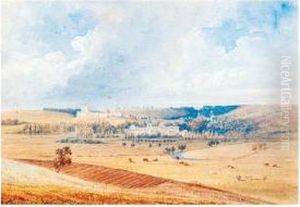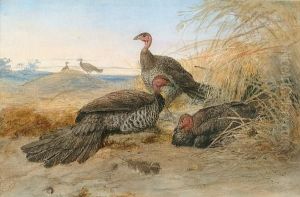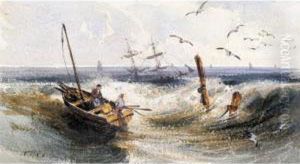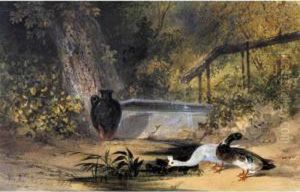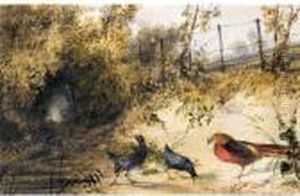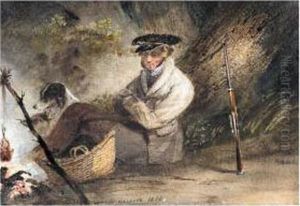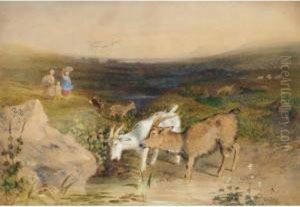Newton Fielding Paintings
Newton Fielding was an English painter and engraver born in 1799 in London, England. He was part of the Fielding family of painters, which included his father, Anthony Vandyke Copley Fielding, who was a well-known landscape artist, and his brothers Thales Fielding and Theodore Fielding, who were also involved in the arts. Newton was particularly known for his works in watercolor and his skillful engravings.
Newton Fielding received his early training from his father and later studied at the Royal Academy Schools. His style was influenced by his father's work and by British watercolorists of the time. He specialized in animal and landscape paintings, and his works often depicted rural scenes, hunting episodes, and horses, which were highly regarded for their attention to detail and sense of movement.
Fielding spent a significant part of his career in France, where he lived for many years. During his time in Paris, he became associated with the Barbizon School, a group of artists known for their realistic portrayal of rural France and for laying the groundwork for the Impressionist movement. His experience in France allowed him to absorb new artistic influences and refine his technique.
Despite his talent, Newton Fielding struggled financially throughout his life. He produced a substantial body of work but did not achieve the same level of fame as some of his contemporaries. However, his works were appreciated by connoisseurs and are still of interest to collectors of English and French watercolors and engravings.
Fielding passed away in 1856, leaving behind a legacy as a competent artist who captured the bucolic charm of the English and French countryside with his brush and engraver's tools. His works continue to be studied and admired for their contribution to the development of watercolor painting and for their place in the context of 19th-century European art.
